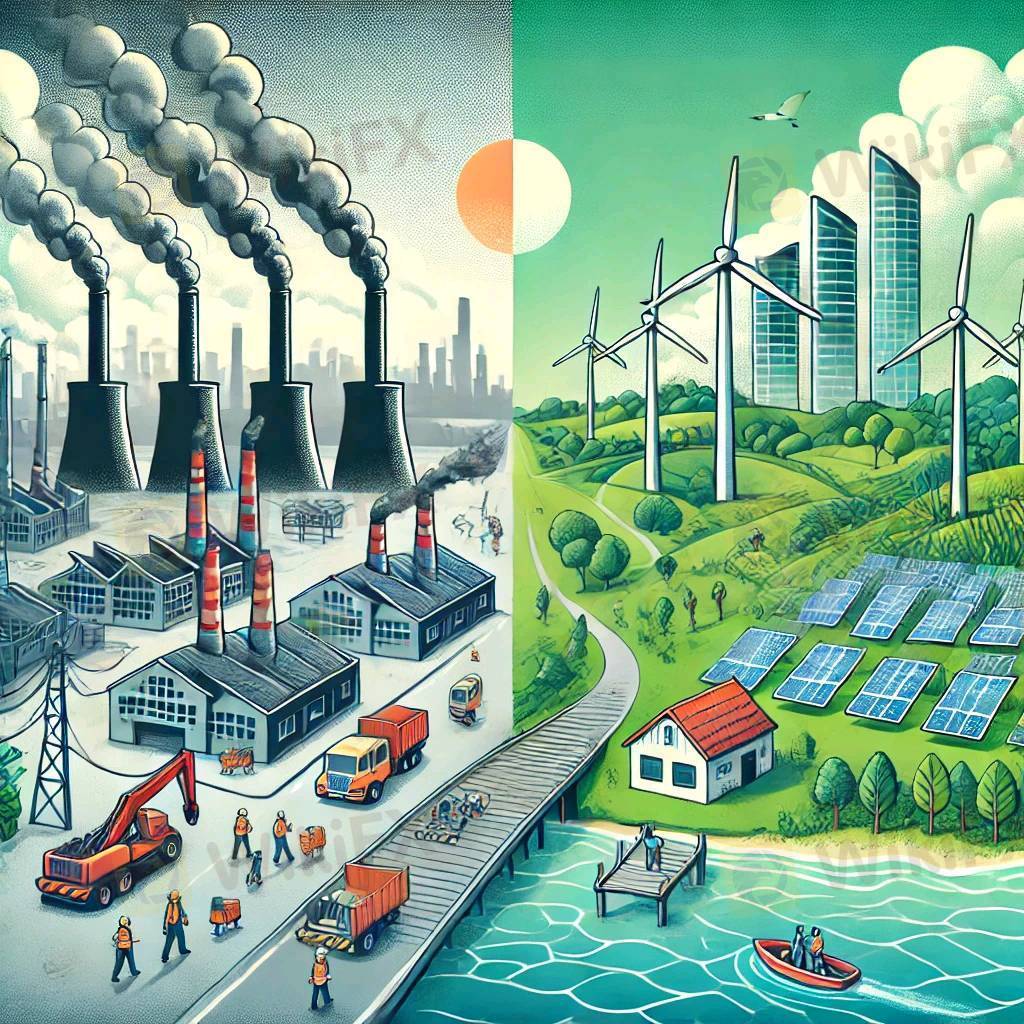
2025-02-12 16:50
IndustriyaEconomic Impacts of Climate Change Policies
#firstdealofthenewyearastylz
Climate change policies aim to reduce greenhouse gas emissions and promote sustainability, but they also have significant economic implications. These policies can influence industries, job markets, global trade, and economic growth in both positive and challenging ways.
1. Job Creation and Green Economy Growth
- Investments in renewable energy (solar, wind, hydro) create new jobs in clean energy sectors.
- Green technologies like electric vehicles (EVs), energy-efficient infrastructure, and carbon capture industries drive economic growth.
- Transitioning to sustainable practices generates opportunities in environmental consulting, eco-friendly manufacturing, and sustainable agriculture.
2. Costs to Traditional Industries
- Fossil fuel industries (coal, oil, gas) face job losses and declining revenues due to stricter regulations and carbon taxes.
- Industries reliant on high emissions (steel, cement, aviation) may struggle with higher operational costs.
- Businesses must invest in new technologies to comply with regulations, which can be costly in the short term.
3. Impact on Consumers and Businesses
- Carbon pricing (taxes or cap-and-trade systems) may lead to higher energy prices, affecting consumers and businesses.
- Incentives like subsidies for electric vehicles or solar panels can reduce costs for consumers adopting green technologies.
- Businesses adopting sustainable practices may see long-term savings through energy efficiency and lower resource consumption.
4. Global Trade and Competitiveness
- Countries with strong climate policies may have an advantage in green technology exports.
- Carbon border taxes (e.g., EU's Carbon Border Adjustment Mechanism) can impact global trade dynamics.
- Developing nations may require financial support to implement climate policies without harming economic growth.
5. Financial Risks and Investments
- Climate risks (extreme weather, rising sea levels) threaten infrastructure and insurance markets.
- Investors are shifting towards sustainable finance, favoring companies with strong Environmental, Social, and Governance (ESG) policies.
- Governments are funding climate adaptation projects, such as flood defenses and reforestation, to mitigate long-term economic losses.
Conclusion
Climate change policies have both short-term economic costs and long-term benefits. While industries reliant on fossil fuels may struggle, the transition to a green economy presents new opportunities for innovation, job creation, and sustainable growth. The key is balancing economic stability with environmental responsibility.
Katulad 0

Nita4135
Courtiers
Mainit na nilalaman
Pagsusuri ng merkado
Dogecoin cheers coinbase listing as Bitcoin’s range play continues
Pagsusuri ng merkado
Grayscale commits to converting GBTC into Bitcoin ETF:
Pagsusuri ng merkado
Bitcoin's price is not the only number going up
Pagsusuri ng merkado
Theta Price Prediction:
Pagsusuri ng merkado
How to Research Stocks:
Pagsusuri ng merkado
Bitcoin (BTC), Ethereum (ETH) Forecast:
Kategorya ng forum

Plataporma

Eksibisyon

Ahente

pangangalap

EA

Industriya

Merkado

talatuntunan
Economic Impacts of Climate Change Policies
 Nigeria | 2025-02-12 16:50
Nigeria | 2025-02-12 16:50#firstdealofthenewyearastylz
Climate change policies aim to reduce greenhouse gas emissions and promote sustainability, but they also have significant economic implications. These policies can influence industries, job markets, global trade, and economic growth in both positive and challenging ways.
1. Job Creation and Green Economy Growth
- Investments in renewable energy (solar, wind, hydro) create new jobs in clean energy sectors.
- Green technologies like electric vehicles (EVs), energy-efficient infrastructure, and carbon capture industries drive economic growth.
- Transitioning to sustainable practices generates opportunities in environmental consulting, eco-friendly manufacturing, and sustainable agriculture.
2. Costs to Traditional Industries
- Fossil fuel industries (coal, oil, gas) face job losses and declining revenues due to stricter regulations and carbon taxes.
- Industries reliant on high emissions (steel, cement, aviation) may struggle with higher operational costs.
- Businesses must invest in new technologies to comply with regulations, which can be costly in the short term.
3. Impact on Consumers and Businesses
- Carbon pricing (taxes or cap-and-trade systems) may lead to higher energy prices, affecting consumers and businesses.
- Incentives like subsidies for electric vehicles or solar panels can reduce costs for consumers adopting green technologies.
- Businesses adopting sustainable practices may see long-term savings through energy efficiency and lower resource consumption.
4. Global Trade and Competitiveness
- Countries with strong climate policies may have an advantage in green technology exports.
- Carbon border taxes (e.g., EU's Carbon Border Adjustment Mechanism) can impact global trade dynamics.
- Developing nations may require financial support to implement climate policies without harming economic growth.
5. Financial Risks and Investments
- Climate risks (extreme weather, rising sea levels) threaten infrastructure and insurance markets.
- Investors are shifting towards sustainable finance, favoring companies with strong Environmental, Social, and Governance (ESG) policies.
- Governments are funding climate adaptation projects, such as flood defenses and reforestation, to mitigate long-term economic losses.
Conclusion
Climate change policies have both short-term economic costs and long-term benefits. While industries reliant on fossil fuels may struggle, the transition to a green economy presents new opportunities for innovation, job creation, and sustainable growth. The key is balancing economic stability with environmental responsibility.
Katulad 0
Gusto kong magkomento din
Ipasa
0Mga komento

Wala pang komento. Gawin ang una.

Ipasa
Wala pang komento. Gawin ang una.